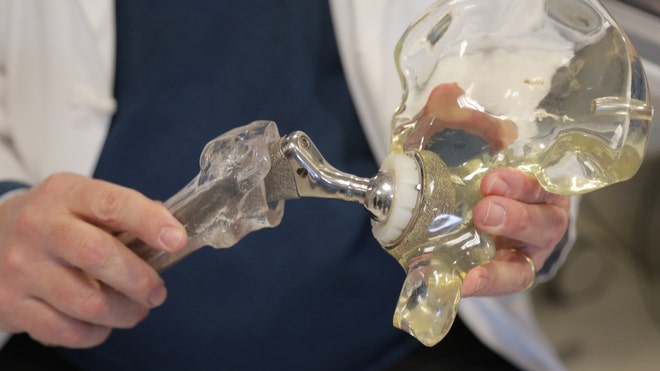
It’s not just grandma with a new hip and your uncle with a new knee. More than 2 of every 100 Americans now have an artificial joint, doctors are reporting.
Among those over 50, it’s even more common: Five percent have replaced a knee and more than 2 percent, a hip.
“They are remarkable numbers,” said Dr. Daniel J. Berry, chairman of orthopedic surgery at the Mayo Clinic. Roughly 7 million people in the United States are living with a total hip or knee replacement.
He led the first major study to estimate how prevalent these procedures have become, using federal databases on surgeries and life expectancy trends. Results were reported Tuesday at an American Academy of Orthopaedic Surgeons conference in New Orleans.
More than 600,000 knees and about 400,000 hips are replaced in the U.S. each year. But until now, there haven’t been good numbers on how many people currently are living with new joints. The number is expected to grow as the population ages, raising questions about cost, how long the new parts will last, and how best to replace the replacements as they wear out over time.
The term “replacement” is a little misleading, said Dr. Joshua Jacobs, chairman of orthopedic surgery at Rush University Medical Center in Chicago and president of the orthopedic surgery association. What’s replaced is the surface of a joint after cartilage has worn away, leaving bone rubbing against bone and causing pain and less mobility.
In a replacement operation, the ends of bones are removed or resurfaced and replaced with plastic, ceramic or metal materials.
Arthritis is the main reason for these operations, followed by obesity, which adds stress on knees and hips. Baby boomers are wearing out joints by playing sports and doing other activities to avoid obesity. Knee replacement surgeries have more than tripled in the 45-to-64 age group over the last decade and nearly half of hip replacements now are in people under 65, federal numbers show.
Source: NBC news


